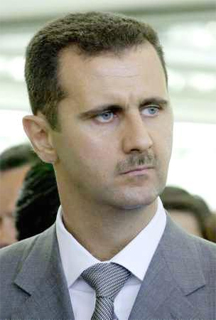GENEVA, (Reuters) – Syria is on the cusp of civil war as rebel soldiers and others take up arms against the government of President Bashar al-Assad, the top U.N. human rights official said yesterday.

High Commissioner for Human Rights Navi Pillay told a news conference 4,000 people were already known to have died in the unrest in Syria this year. “But really the reliable information coming to us is that it is much more than that,” she added.
“I have said that as soon as there were more and more defectors threatening to take up arms – I said this in August before the Security Council – there was going to be a civil war. At the moment that’s how I am characterising this,” she said. Later, her spokesman Rupert Colville clarified her remarks.
“It is definitely heading that way, with more and more reports of armed resistance to the government forces. It is on the cusp, but in these circumstances it is hard to say definitively at what point it becomes civil war,” he told Reuters.
The U.N. Human Rights Council is holding an emergency session on Syria today following a report by an independent U.N. commission of inquiry that said Syrian forces have committed crimes against humanity including executions, torture and rape.
“I intend to add my voice to the finding of the commission of inquiry with regard to evidence pointing to the commission of crimes against humanity,” said Pillay, a former U.N. war crimes judge who will address the one-day session in Geneva.
Pillay noted that she had called in August for the Security Council to refer Syria to the prosecutor of the International Criminal Court (ICC) for alleged crimes against humanity.
“In my own view, based on our own monitoring of the situation, there is need for prosecution of perpetrators at the highest level for crimes against humanity,” she said.
“SANCTIONS WILL BITE”
The United States, European Union and Arab League blacklisted Syrian VIPs and companies yesterday, hoping to force an end to the eight-month military crackdown on pro-democracy protesters challenging Assad’s rule.
“I want to endorse what was said to me by one of the Arab state ambassadors who is sponsoring the special session tomorrow, and that is of course they also feel totally hopeless, they feel that the sanctions will bite because the wealth is concentrated on the family around him,” Pillay said, in a reference to Assad.
“And they feel that the momentum has to be maintained. So the council session is important, my statements are important, eventually to get to the Security Council and also to get the message to those who are holding back on drastic action by the Security Council, so they will also understand this is serious.”
Russia and China, which both have oil concessions in Syria, teamed up in October to veto a Western-backed Security Council resolution condemning Assad’s government for violence.
The two powers, joined by Cuba, have been trying to tone down an EU resolution being presented at the rights forum on Friday, diplomats said.
The original EU draft text, supported by a host of Arab countries as well as the United States, strongly condemned Syria and called for the U.N. report on crimes against humanity to be sent to the Security Council.




